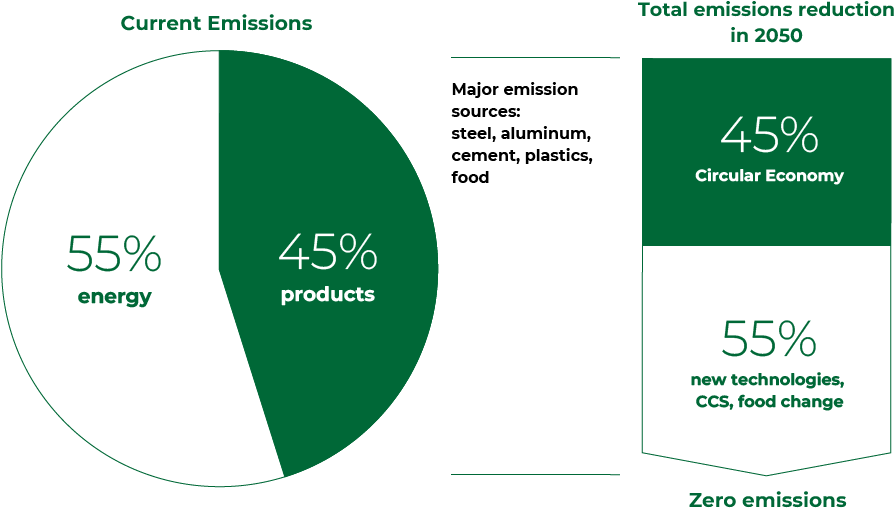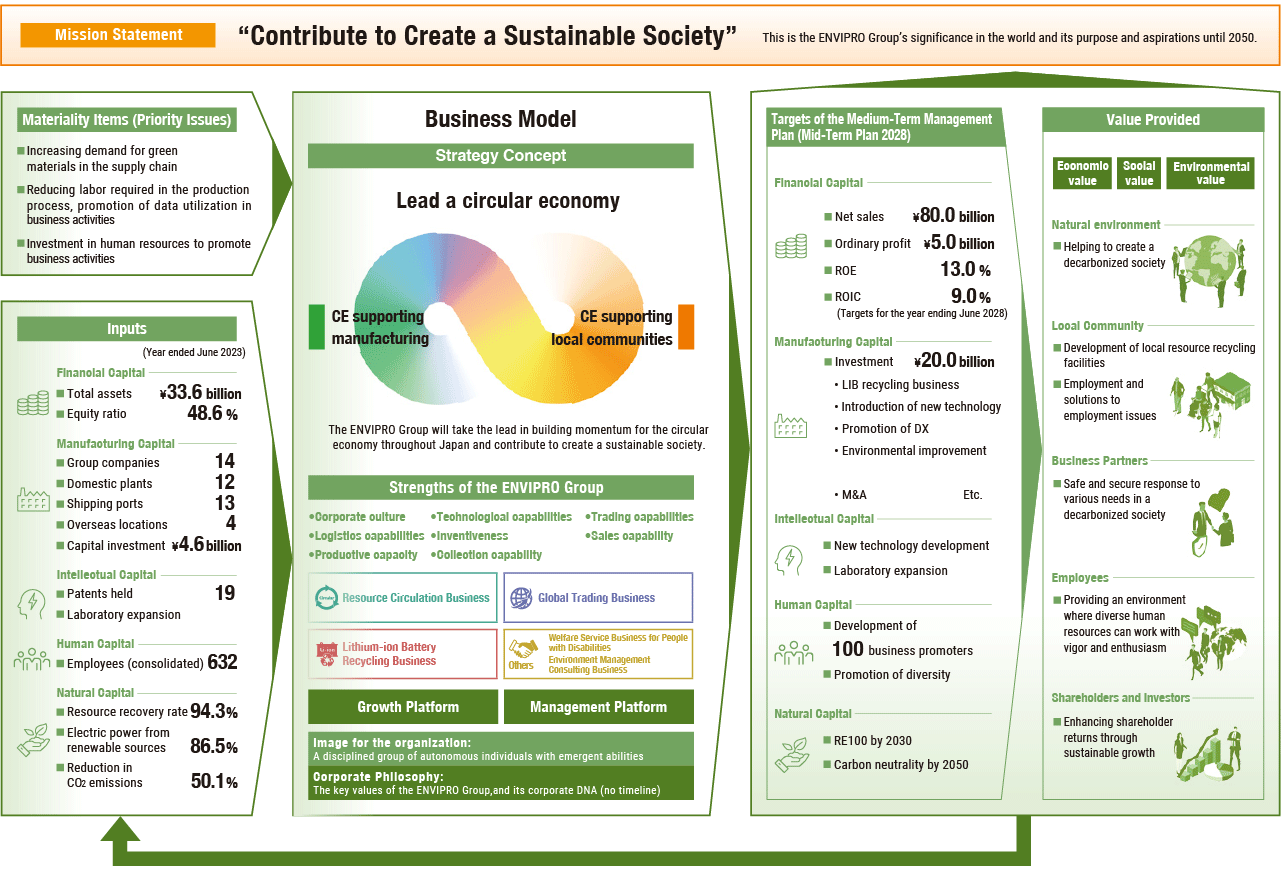Value Creation Process and Materiality
SUSTAINABILITY
We are facing a plethora of social issues as the world's average temperatures have reached all-time highs across the board, and people are talking about the arrival of an era of global boiling, more serious than that of global warming.
Based on the Group's corporate philosophy and mission, the Envipro Group, as a leader in a Circular Economy, identifies materiality (key issues) by organizing the relationship between its business activities and social issues.
We will continue to provide sustainable value to our stakeholders through the Group's value creation process to realize our mission statement and achieve sustainable growth.

Materiality (key issues) for success of mission
Materiality is categorized into three categories.
Categories 1-2 are materialities that enable us to proactively resolve issues and contribute to society through our business, while Categories 2-3 are materialities that promote our business and strengthen our management foundation.
SDG targets related to each category are also shown.
| Themes | Materialities (key issues) | Corresponding SDGs goals | |
|---|---|---|---|
Solving social issues through business Solving social issues through corporate activities |
1. Green materials production | Increase in demand for green materials in supply chains
|
|
| 2. Productivity and DX | Labor savings in production processes, | ||
| 3. Human resource development | Investment in human resources to drive business activities |
||
Materiality Identification Process
A rapid response to climate change
There are a variety of domestic and international societal issues that will lead to unsustainable conditions. 2023 saw the world's average temperature soar to all-time highs across the board, and there was talk of an era of global boiling, which is more serious than global warming.
The external environment surrounding us is also changing drastically.
Social trends surrounding the Envipro Group
Long-term trends

Green transformation

Digital transformation
Medium- and short-term trends
- Demand for the establishment of green value chains
- Growing international competition for resources
- Emergence of social issues related to waste plastics
- Use of data in non-IT businesses
- Increased use of IoT, AI and Robotics
- Growing competition for human resources
Toward carbon neutrality by 2050
In response to climate change, it is expected that society will increasingly demand carbon neutrality. In order to achieve carbon neutrality, in addition to the electrification of economic activities and the use of renewable energy for electricity, the lifecycle of products, such as manufacturing, use and disposal, must be reviewed and intentionally redesigned through a Circular Economy.
The big picture of greenhouse gas emissions: Tackling overlooked emissions

According to the Ellen MacArthur Foundation (*1), 55% of total greenhouse gas emissions can be reduced through renewable energy, with the remaining 45% related to product manufacturing and use. This 45% emissions reduction can be addressed through a Circular Economy. In Japan, it is estimated that about 36% of total greenhouse gas emissions come from sectors that could contribute to its reductions through resource circulation efforts. (*2)
*1 The Ellen MacArthur Foundation: An organization launched in the United Kingdom in 2010 with the vision of accelerating the transition to a Circular Economy. Since its establishment, the foundation has been engaged in a wide range of activities, including educational activities by disseminating information and building a global network that transcends national boundaries.
*2 Source: Ministry of the Environment, "Second Progress Check of the Fourth Fundamental Plan for Establishing a Sound Material-Cycle Society, and Reference Materials on a Circular Economy Schedule”
Expanding a Circular Economy
The goal of the Envipro Group is to create a sustainable society that uses every material repeatedly, preserving its value for as long as possible. The Group promotes RE100 and produces green materials (*3). We produce a wide range of resources, including ferrous scrap, nonferrous metals and minor metals that are necessary to support the electrification of economic activities. We aim to realize a Circular Economy by connecting the green materials we produce to arterial procurement and manufacturing processes and to build a supply chain that allows products and materials to continue to be distributed and circulated in a high state of value.
The Circular Economy-related market is expected to expand significantly in Japan and abroad in the future and is targeted to reach 80 trillion yen in 2030 and 120 trillion yen in 2050 in Japan.
As a leader in a Circular Economy, the Group has identified three themes as materiality (key issues): "production of green materials," "productivity and DX" and "human resource development."
*3 Green materials: Materials (recycled raw materials and recycled materials) made from terrestrial resources (waste) in a way that does not generate greenhouse gases, or generates very little greenhouse gas emissions.

